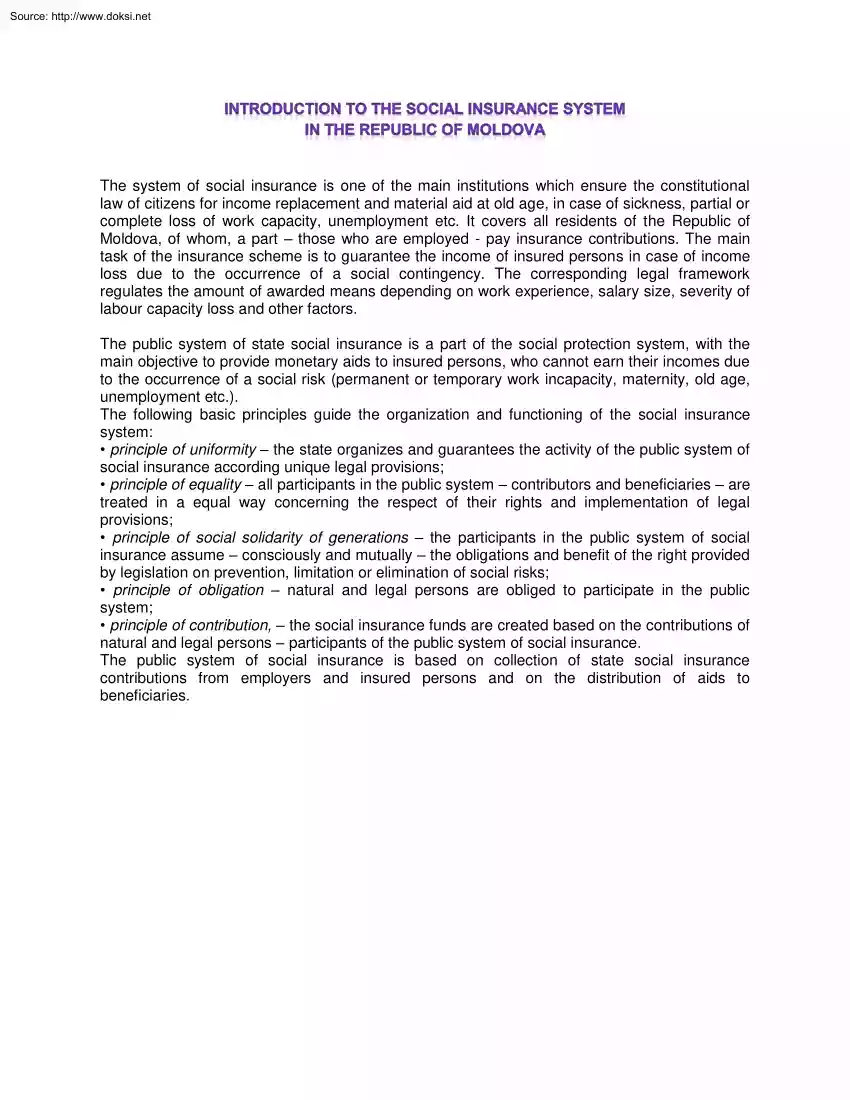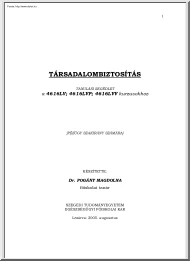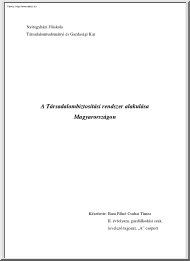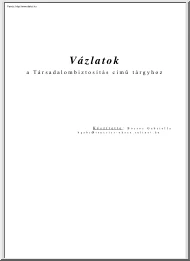Datasheet
Year, pagecount:2013, 1 page(s)
Language:English
Downloads:2
Uploaded:January 11, 2018
Size:575 KB
Institution:
-
Comments:
Attachment:-
Download in PDF:Please log in!
Comments
No comments yet. You can be the first!Content extract
Source: http://www.doksinet The system of social insurance is one of the main institutions which ensure the constitutional law of citizens for income replacement and material aid at old age, in case of sickness, partial or complete loss of work capacity, unemployment etc. It covers all residents of the Republic of Moldova, of whom, a part – those who are employed - pay insurance contributions. The main task of the insurance scheme is to guarantee the income of insured persons in case of income loss due to the occurrence of a social contingency. The corresponding legal framework regulates the amount of awarded means depending on work experience, salary size, severity of labour capacity loss and other factors. The public system of state social insurance is a part of the social protection system, with the main objective to provide monetary aids to insured persons, who cannot earn their incomes due to the occurrence of a social risk (permanent or temporary work incapacity, maternity,
old age, unemployment etc.) The following basic principles guide the organization and functioning of the social insurance system: • principle of uniformity – the state organizes and guarantees the activity of the public system of social insurance according unique legal provisions; • principle of equality – all participants in the public system – contributors and beneficiaries – are treated in a equal way concerning the respect of their rights and implementation of legal provisions; • principle of social solidarity of generations – the participants in the public system of social insurance assume – consciously and mutually – the obligations and benefit of the right provided by legislation on prevention, limitation or elimination of social risks; • principle of obligation – natural and legal persons are obliged to participate in the public system; • principle of contribution, – the social insurance funds are created based on the contributions of natural and
legal persons – participants of the public system of social insurance. The public system of social insurance is based on collection of state social insurance contributions from employers and insured persons and on the distribution of aids to beneficiaries
old age, unemployment etc.) The following basic principles guide the organization and functioning of the social insurance system: • principle of uniformity – the state organizes and guarantees the activity of the public system of social insurance according unique legal provisions; • principle of equality – all participants in the public system – contributors and beneficiaries – are treated in a equal way concerning the respect of their rights and implementation of legal provisions; • principle of social solidarity of generations – the participants in the public system of social insurance assume – consciously and mutually – the obligations and benefit of the right provided by legislation on prevention, limitation or elimination of social risks; • principle of obligation – natural and legal persons are obliged to participate in the public system; • principle of contribution, – the social insurance funds are created based on the contributions of natural and
legal persons – participants of the public system of social insurance. The public system of social insurance is based on collection of state social insurance contributions from employers and insured persons and on the distribution of aids to beneficiaries





